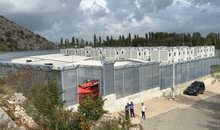
 Flash News
Flash News
Accident in Lushnje, four cars and a motorcycle involved
SPAK closed the investigations, Meta reacts: It was signed on the orders of Edi Rama
Defendant was taken from SPAK, Kryemadhi: Chief Prosecutor of BKH is Edi Rama
Laundered Çopjave money, arrested in Dubai Armis Stafa
The Democratic Party appeals the election results in Korça
Corruption in Albania, ACER assistant: Institutions suffer politicization, government to increase cooperation with citizens

Although Albania has undergone significant reforms in recent years, corruption is still a concern. Many are still unresolved as the part of the citizens who have lost faith in the government and their policies is already growing.
In an interview for European Western Balkans, Research Assistant at the Albanian Center for Economic Research Ervi Kosta, spoke about the causes of corruption in Albania and the challenges of the government to fight it as soon as possible.
Among the main causes of corruption, Costa ranked first the political influence on the institutions, to continue with the lack of transparency on their part towards the citizens, which has caused their trust in political opponents to decline significantly.
"In Albania, the fight against corruption remains one of the main challenges of society and governance. For years in Albania, corruption in all its forms has been an influential factor in the lives of citizens, the functioning of institutions and the implementation of economic and legal reforms. Some of the main causes of corruption in Albania are political influence on institutions, low public awareness and participation, lack of accountability by public institutions, high level of informality, use of political parties as intermediaries in the usurpation of institutions by business lobbies and the oligarchy, and the backward culture or mentality of the Albanian society, ”said Kosta.
Civil society in Albania, Costa sees as problematic as society, listing among its main deadlocks the lack of influence in the community, politicization or insufficient public trust.
"Civil society in Albania suffers from the same problems as Albanian society, such as fragmentation, lack of influence on the community and stakeholders, politicization, limited resources and conditionality by donor priorities, insufficient public trust in society actors civil, limited expertise in governance relations. Although there have been co-operation efforts between CSOs and state institutions in Albania regarding the fight against corruption, their partnership has not been fruitful. I believe that some CSOs in Albania play a role in the fight against corruption, raising their voices on issues suspected of possible corruption, ” added the research assistant at ACER.
Regarding the most challenging areas to fight corruption, the research assistant ranks first the consolidation of judicial reform, continuing further until the reconstruction of public trust.
"The main challenging areas in the fight against corruption are the consolidation of judicial reform, the extension of the principles of verification in the state administration and political parties, the building of public trust in law institutions," said Costa.
Ervi Kosta underlines the cooperation between law enforcement institutions and the active participation of citizens as an opportunity to reduce the phenomenon of corruption in the country.
"The solution to reduce corruption is closely linked to respecting the free vote of citizens, increasing the transparency of every agency and public institution, with the legal punishment of every responsible individual in the state and political administration. In this process, the role of international partners remains irreplaceable as long as for current interests, these partners do not create the stability of institutions and the economy over democracy but contribute to their parallel progress. "The following important challenges for Albania in the fight against corruption are the increase of cooperation between law enforcement institutions, the promotion of corruption reporting and the promotion of the active participation of citizens in the fight against corruption," concluded Kosta.
Latest news


70 Albanians from Kosovo and Albania are deported from Germany
2025-05-27 20:59:16



Italy/ 39-year-old Albanian man crashes to death while waiting to go to work
2025-05-27 20:15:03
SPAK's accusations against Meta, AP: Former president openly critical of Rama
2025-05-27 20:09:47
Accident in Lushnje, four cars and a motorcycle involved
2025-05-27 19:44:24


Rama eating pasta, photojournalist reveals the story behind the viral photo
2025-05-27 19:13:56
Meat with salmonella still on the market? AKU reacts: Fake news
2025-05-27 19:03:29
Violations of May 11, Lela: 'Database' ready, internationals are being informed
2025-05-27 18:47:40
Scandal with animal products in Kosovo, Minister of Agriculture questioned
2025-05-27 18:47:24
Congratulations... to the Albanian people
2025-05-27 18:20:00

"SP stole 2 mandates from us", Lapaj: Fier and Vlora regions must be recounted
2025-05-27 17:42:39

Kosovo takes control of another facility in Leposavic
2025-05-27 17:25:55



DP demands repeat elections in Gjirokastra and Vlora
2025-05-27 16:37:47
Should Berisha resign? Alimehmeti: Stages cannot be burned
2025-05-27 16:18:22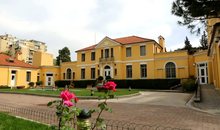
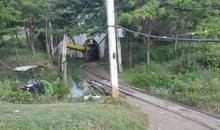

Sunscreen, five myths that endanger your health
2025-05-27 15:52:57

EC chief condemns Israeli attacks on Gaza: They are disgusting
2025-05-27 15:23:30



Defendant was taken from SPAK, Kryemadhi: Chief Prosecutor of BKH is Edi Rama
2025-05-27 14:47:32
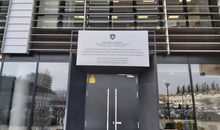
Police raid Kosovo's Ministry of Agriculture
2025-05-27 14:31:07
Laundered Çopjave money, arrested in Dubai Armis Stafa
2025-05-27 14:22:55
Tried to kill cousin in Italy? Case against Albanian from Kosovo closed
2025-05-27 14:12:33

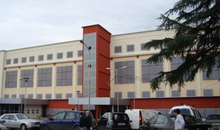

Prostitution network busted, Brazilian woman declared wanted
2025-05-27 13:31:20

SPAK took the defendant, Meta reacts: I eagerly await the start of the trial
2025-05-27 13:11:06

A party with a dead body inside
2025-05-27 12:51:40



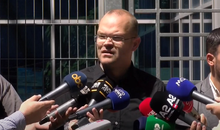

Session to constitute Kosovo Assembly fails for the 22nd time
2025-05-27 11:53:33
He passed away a few days ago, tributes are being held in honor of Artan Lame
2025-05-27 11:44:47
Reactions to Macron's slap
2025-05-27 11:32:35

Greek notary killed with intent to rob her, 3 Albanians arrested
2025-05-27 11:11:25
Aulona Kalaja appears at SPAK, files a complaint for the forgiveness of fines
2025-05-27 10:58:24

Meta will use Europeans' posts for AI training
2025-05-27 10:42:07

The Democratic Party appeals the election results in Korça
2025-05-27 10:23:11

Igli Tare appointed Milan Sporting Director
2025-05-27 10:03:54
Albanian caught with cocaine worth around 14 million euros
2025-05-27 10:00:56

Foreign exchange/ How much foreign currencies are bought and sold today
2025-05-27 09:40:13

Brussels presents 150 billion euro plan to strengthen EU defense capabilities
2025-05-27 09:14:33

He raped his minor daughter, 60-year-old man arrested (NAME)
2025-05-27 08:57:54


Artan Lame is being transported to his final residence today
2025-05-27 08:26:24
Horoscope, what do the stars have in store for you today?
2025-05-27 08:15:43
Weather forecast, sun and temperatures up to 29 degrees during the day
2025-05-27 08:01:32
Morning Post/ In 2 lines: What mattered yesterday in Albania
2025-05-27 07:47:24





WHO calls for medical aid trucks to be allowed into Gaza
2025-05-26 21:46:31
Did he want to burn it by running in Vlora? Gjiknuri: Rama experimented
2025-05-26 21:39:25


REL: Serbian police order for the arrest of Kosovo policeman, "very unreal"
2025-05-26 21:01:48



Milan officially announces the appointment of Igli Tara as Sporting Director
2025-05-26 19:43:14

Former Kosovo MP released after being detained at border by Serbian authorities
2025-05-26 19:24:50
Magnificent buffet in Hanoi
2025-05-26 19:03:41

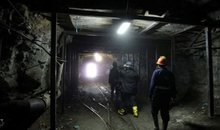

Migrant centers/ Kosovo government ready to discuss with the United Kingdom
2025-05-26 18:05:33

UN: Gaza in agricultural collapse, only 5% of land remains arable
2025-05-26 17:42:53
Former Ambassador: The US will react to the farce, it will upset many balances!
2025-05-26 17:34:26